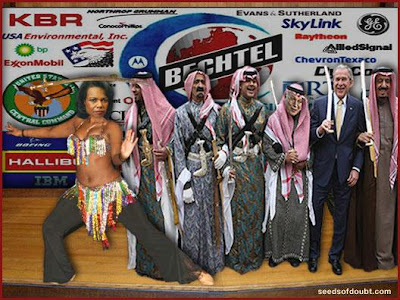Israel's chief of military intelligence said in comments published Friday that Palestinian President Mahmoud Abbas may flee the area if peace efforts fail.
Maj. Gen. Amos Yadlin told the Haaretz daily that he is not optimistic about Israeli-Palestinian attempts to reach a final peace deal by the end of the year.
Yadlin predicted that such a failure of the U.S.-backed efforts would severely weaken Abbas and force him to leave the West Bank.
"If there is a sharp confrontation, with accusations hurled, I think the Palestinian Authority leadership will be very much weakened, so much so that very senior officials will leave," Yadlin told the newspaper.
When asked if that means Abbas could flee the Palestinian areas, Yadlin replied "I do not rule out that possibility."
Abbas pledge on 'catastrophe' day
Palestinian Authority President Mahmoud Abbas says he is determined to end Israel's occupation of Palestinian land, labeling it ""mankind's shame"". Mr. Abbas also said his hands were extended in peace, as Palestinians mark the ""catastrophe"" of Israel's creation. More than 700,000 Palestinians were displaced in the war that followed Israel's establishment in 1948. U.S. President George W Bush, who is visiting the country, told MPs that Washington was Israel's closest ally. As Palestinians recalled the ""Nakba"" (catastrophe) 60 years ago, Mr. Abbas said in a televised speech:
""It is time for this occupation to leave our land and blood. ""It is time this mankind's shame, which is called the Palestinian people's Nakba, to end."" Sirens sounded across the Palestinian territories during two minutes of silence for those who fled or were expelled in the conflict that followed Israel's declaration of independence. Protest rallies were held across the West Bank and Gaza, and demonstrators released 21,915 black balloons - one for each day since Israel's creation. Many Palestinians accuse Israel of collective punishment in its attempts to quash Palestinian resistance fighters, says the BBC's Katya Adler in Beit-ul-Moqaddass.
MPs walk out At the Erez border crossing in Gaza, Israeli troops opened fire towards demonstrators. There was no immediate word of any casualties. There were also clashes between Palestinian protesters and Israeli troops near the Qalandiya refugee camp in the West Bank. In Beit-ul-Moqaddass, Mr. Bush received a standing ovation from MPs at the Israeli parliament, the Knesset. Mr. Bush said: ""Israel's population may be just over seven million. ""But when you confront terror and evil, you are 307m strong, because the United States of America stands with you."" The president did not repeat his ambition, stated earlier this year, for a full peace deal between the Israelis and Palestinians within the next eight months. He again urged action to prevent states obtaining nuclear weapons. ""Permitting the world's leading sponsor of terror to possess the world's deadliest weapon would be an unforgivable betrayal of future generations,"" he said. And he backed Israel's refusal to negotiate with the Islamist Hamas movement.
Israeli PM Ehud Olmert said there should be a different Middle East over the next 60 years that would include a democratic homeland for Palestinians. He also said he thought the Israeli people and parliament would overwhelmingly back a peace agreement with the Palestinians. A number of hardline Israeli MPs walked out as he spoke. Mr. Bush's Middle East visit will include Saudi Arabia and Egypt. But there will be no trilateral summit between the American, Israeli and Palestinian leaders.




















